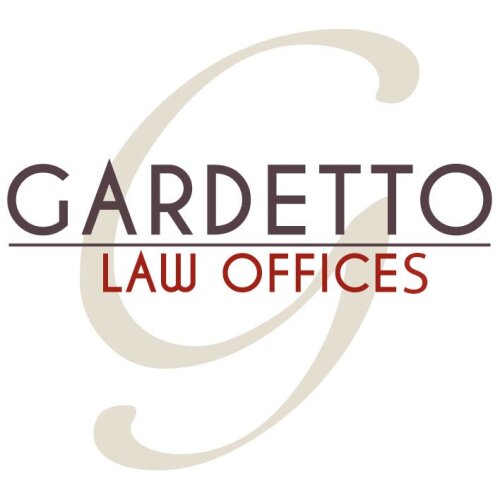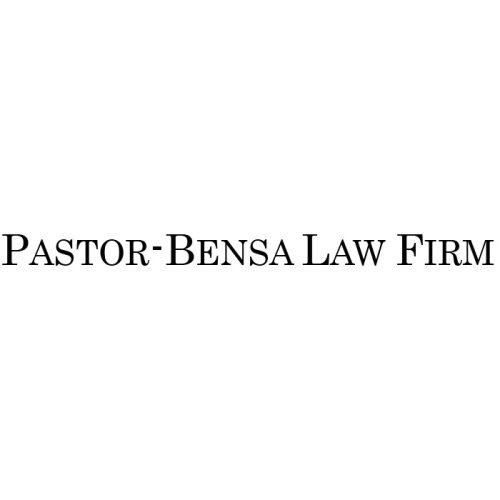Best Renewable & Alternative Energy Lawyers in Monaco
Share your needs with us, get contacted by law firms.
Free. Takes 2 min.
Or refine your search by selecting a city:
List of the best lawyers in Monaco
About Renewable & Alternative Energy Law in Monaco
Monaco is a sovereign city-state known for its commitment to environmental sustainability and energy efficiency. While Monaco is a small territory, it has made significant efforts to reduce its carbon footprint, diversify its energy sources, and promote renewable and alternative energies. The legal framework governing renewable and alternative energy in Monaco is closely aligned with its sustainability goals, and includes regulations on solar energy, energy efficiency, and the integration of new technologies. Investment in renewable energy projects and sustainable development is encouraged, with an increasing focus on compliance with international environmental standards.
Why You May Need a Lawyer
Navigating the legal landscape of renewable and alternative energy in Monaco can be complex. Legal assistance may be required in several situations, such as:
- Setting up or investing in renewable energy projects, including solar installations and innovative energy systems
- Understanding compliance obligations with local laws, permits, and environmental regulations
- Negotiating contracts for the purchase, sale, or distribution of renewable energy
- Resolving disputes related to energy supply, project development, or regulatory matters
- Advising on government incentives, funding opportunities, or tax benefits for sustainable energy efforts
- Assisting property developers or businesses with integrating alternative energy solutions into new or existing buildings
- Representing clients before government agencies in connection with energy project approvals or disputes
Given the rapid evolution of this sector and the complexities of regulatory compliance, a lawyer specializing in renewable and alternative energy can provide invaluable guidance and risk management.
Local Laws Overview
Monaco’s legal framework for renewable and alternative energy is shaped by its commitment to reduce greenhouse gas emissions and promote sustainable energy. Key aspects include:
- National Energy Transition Pact (Pacte National pour la Transition Energétique) - This initiative aims to enable Monaco to become carbon neutral by 2050. It includes policies promoting energy efficiency, renewable energy adoption, and emission reductions.
- Building Codes and Energy Standards - New buildings and major renovations must meet energy efficiency standards, encouraging the incorporation of solar panels and green technologies.
- Solar Energy Legislation - Regulations address the safe and efficient installation of photovoltaic panels and encourage their adoption in both residential and commercial contexts.
- Environmental Regulations - All energy projects are subject to environmental impact assessments and compliance with strict local environmental standards.
- International Commitments - Monaco aligns its regulations with the Paris Agreement and collaborates with international bodies on sustainable energy initiatives.
Understanding these regulations is essential for anyone seeking to develop or participate in renewable energy projects within Monaco.
Frequently Asked Questions
What types of renewable energy projects are most common in Monaco?
Solar energy projects, especially photovoltaic panel installations, are the most common due to Monaco’s climate and urban environment. There is also interest in innovative solutions like geothermal and marine energy, given Monaco’s geographical location.
Do homeowners need special permits to install solar panels?
Yes. Installing solar panels requires compliance with local building codes and obtaining necessary permits from Monaco’s relevant authorities. It is important to ensure all regulatory requirements are met before proceeding.
Are there government incentives for using renewable energy in Monaco?
Monaco offers various incentives, including grants and tax benefits, to individuals and businesses that adopt renewable energy or energy-efficient solutions. Details may vary, so consulting the relevant government agency or a legal expert is advisable.
Can businesses sell renewable energy back to the grid?
Regulations for selling electricity back to the grid exist, but they are subject to approval and compliance with technical and safety standards. Businesses must work with the local utility and adhere to all regulatory requirements.
How do environmental impact assessments affect energy projects?
All significant energy projects, especially those involving new technologies or large-scale installations, require an environmental impact assessment to ensure minimal negative effects on the local environment.
Are alternative energy projects in Monaco subject to international laws?
While Monaco has its own energy regulations, it aligns with many international treaties and agreements, such as the Paris Agreement, influencing how projects must be planned and executed.
What are the penalties for non-compliance with renewable energy regulations?
Penalties can range from fines to the suspension of project activities. Non-compliance may also result in the need to restore sites to their original state or compensate for environmental damage.
Is legal representation mandatory for renewable energy projects?
While not always mandatory, legal representation is highly recommended due to the technical, regulatory, and contractual complexities involved in renewable energy development in Monaco.
Can foreign companies invest in Monaco’s renewable energy sector?
Yes, foreign companies can invest, but they must comply with Monaco’s specific legal and regulatory requirements. Legal guidance is advisable to navigate these processes.
What role do local authorities play in approving energy projects?
Local authorities are responsible for granting permits, conducting environmental reviews, and ensuring compliance with urban and energy regulations. Their role is central to project approval and oversight.
Additional Resources
If you are seeking further information or assistance, the following resources may be helpful:
- Monaco’s Department of the Environment (Direction de l’Environnement) - The principal agency overseeing renewable energy and environmental regulations
- Mission for Energy Transition (Mission pour la Transition Energétique) - Offers information and support for energy efficiency and renewable initiatives
- Government of Monaco - Provides updates on legislation, incentives, and guides for residents and businesses
- Local chambers of commerce for connecting with industry professionals and legal experts
Next Steps
If you require legal advice regarding renewable and alternative energy in Monaco, consider the following steps:
- Clearly define your project or objective, including technical details and goals
- Gather documents such as property deeds, engineering plans, or business proposals relevant to your purpose
- Find a qualified lawyer or legal firm specializing in energy law or environmental regulation in Monaco
- Set up a consultation to discuss your situation, compliance obligations, and possible legal pathways
- Follow professional legal guidance for applications, permits, or negotiations with local authorities
- Review contractual documents carefully and ensure that all compliance measures are met before project launch
Taking these steps can provide a strong legal foundation for success with your renewable or alternative energy project in Monaco.
Lawzana helps you find the best lawyers and law firms in Monaco through a curated and pre-screened list of qualified legal professionals. Our platform offers rankings and detailed profiles of attorneys and law firms, allowing you to compare based on practice areas, including Renewable & Alternative Energy, experience, and client feedback.
Each profile includes a description of the firm's areas of practice, client reviews, team members and partners, year of establishment, spoken languages, office locations, contact information, social media presence, and any published articles or resources. Most firms on our platform speak English and are experienced in both local and international legal matters.
Get a quote from top-rated law firms in Monaco — quickly, securely, and without unnecessary hassle.
Disclaimer:
The information provided on this page is for general informational purposes only and does not constitute legal advice. While we strive to ensure the accuracy and relevance of the content, legal information may change over time, and interpretations of the law can vary. You should always consult with a qualified legal professional for advice specific to your situation.
We disclaim all liability for actions taken or not taken based on the content of this page. If you believe any information is incorrect or outdated, please contact us, and we will review and update it where appropriate.
Browse renewable & alternative energy law firms by city in Monaco
Refine your search by selecting a city.

















